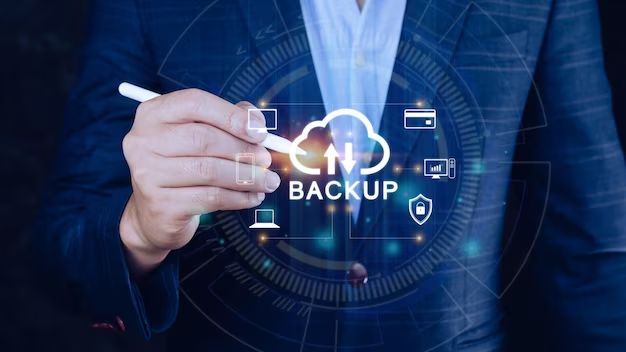Having a reliable backup solution is critical for protecting important data. The best backup solution for you depends on your specific needs and budget. Here are some key factors to consider when choosing a backup solution:
Storage Media
There are several options for the physical media to store backup data:
- External hard drives: Affordable and offer high capacities. Can be kept offline for added security.
- Cloud storage: Provides offsite backup and allows access from anywhere. Subscription fees based on storage needs.
- Tape drives: Relatively inexpensive per GB stored. Tapes can be rotated offsite for security.
- Network attached storage (NAS): Convenient for backing up multiple devices over a local network. Can add redundancy.
Automation
Manual backups are time consuming and easy to forget. Automated backup software simplifies the process:
- File/folder backup: Copies specified files and folders to the backup destination.
- Disk imaging: Takes a snapshot of the entire hard drive contents.
- Incremental backup: Only backs up new/changed files since the last backup.
- Scheduling: Set backups to run automatically on a schedule.
Security
Strong encryption protects backup data from unauthorized access:
- Encryption in transit: Encrypts data as it travels to the backup destination.
- Encryption at rest: Encrypts data after it reaches the backup destination.
- Private keys: Controls access so only authorized users can restore data.
Versioning
Versioning saves multiple iterations of files over time:
- Recover previous versions: Rollback to earlier versions if files become corrupted or lost.
- Protect against ransomware: Revert to clean versions unaffected by malware.
- Historical snapshots: View or restore data from specific points in time.
Testing and Verification
Regular testing confirms that backups are working properly:
- Recovery testing: Perform test restores to ensure data is recoverable.
- Backup reporting: Review backup logs and summaries for errors.
- Offline verification: Physically disconnect backup media and verify contents.
- Alert notifications: Get notified if a backup fails or encounters errors.
Offsite and Redundant Backups
Additional backup best practices include:
- 3-2-1 rule: Keep 3 copies of data, on 2 different media, with 1 copy offsite.
- Air gap: Store a backup offline and disconnected from systems.
- Geographic redundancy: Keep backups in multiple physical locations.
- Cloud + local: Combine cloud storage with onsite media for redundancy.
Cost Considerations
Factors that affect backup costs:
- Storage capacity: The amount of data being backed up.
- Bandwidth: For transferring data to cloud storage.
- Number of devices: More devices means more backup licenses.
- Service fees: For managed backup services and cloud storage.
- Hardware: For media like external drives and tape libraries.
Ease of Use
Look for backup solutions that provide:
- Simple installation and configuration
- Intuitive management interface
- Scalability to add storage as needed
- Options for advanced settings and customization
- Detailed reporting and monitoring
Compatibility
The backup solution should be compatible with:
- All computers, operating systems, and mobile devices you need to backup
- Existing hardware like RAID arrays and NAS devices
- Cloud services like Office 365 and G Suite email/data
- Hypervisors like VMware and Hyper-V for virtual machine backups
- Business applications like SQL Server databases
Conclusion
Choosing the right backup solution involves prioritizing your specific needs – whether that’s budget, security, ease of use, compatibility, or other factors. Leading commercial backup products like Veeam, Acronis, StorageCraft, and others can provide versatile data protection for many environments. Open source solutions like Bacula are also an option. For smaller data sets, cloud backup services like Backblaze and Carbonite offer simplicity. Test different solutions thoroughly and read reviews to determine the best fit for your organization.
Reliable backups provide peace of mind by safeguarding important data from loss. Evaluate both onsite and cloud options that automate the process while providing security, scalability, and widespread compatibility. With a sound backup strategy, you can restore data quickly in the event of ransomware, outages, or other issues. Keep backups current and test restores regularly to ensure your solution is ready when disaster strikes.

